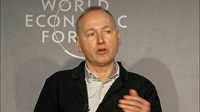Advertisement
Grab your lab coat. Let's get started
Welcome!
Welcome!
Create an account below to get 6 C&EN articles per month, receive newsletters and more - all free.
It seems this is your first time logging in online. Please enter the following information to continue.
As an ACS member you automatically get access to this site. All we need is few more details to create your reading experience.
Not you? Sign in with a different account.
Not you? Sign in with a different account.
ERROR 1
ERROR 1
ERROR 2
ERROR 2
ERROR 2
ERROR 2
ERROR 2
Password and Confirm password must match.
If you have an ACS member number, please enter it here so we can link this account to your membership. (optional)
ERROR 2
ACS values your privacy. By submitting your information, you are gaining access to C&EN and subscribing to our weekly newsletter. We use the information you provide to make your reading experience better, and we will never sell your data to third party members.
Environment
Spotlight On Sustainability
Presidential symposia focus on the future of energy, food, and water
by Stephen K. Ritter
March 28, 2007
The greatest challenge for chemists in the coming decades will be developing molecular solutions to ensure sustainable energy, food, and water supplies for all humanity. That stark declaration, and the enormity of this challenge, was the consensus view of several expert panels that assembled to discuss global sustainability during the American Chemical Society national meeting held March 25–29 in Chicago.
ACS President Catherine T. (Katie) Hunt, leader for collaborative technology partnerships at Rohm and Haas, selected sustainability as the presidential theme for the Chicago meeting in order to "nucleate ideas, foster community, and accelerate innovation." She said that "openly discussing these topics as a scientific community better enables us to speak with one voice."
Hunt hosted several sessions in which technology opportunities and educational needs were the heart of the dialogue. A common statement iterated by several of the panelists is that it's time to move beyond the growing talk about sustainability from the past two decades and "put theory into practice." Early progress in that direction was evident in Chicago, as nearly every ACS division sponsored symposia related to energy, food, or water sustainability.
"Energy is the number one issue facing the world today," commented John F. Mizroch, head of the Department of Energy's Office of Energy Efficiency & Renewable Energy. Climate change and energy security are real problems associated with the use of fossil fuels, Mizroch said. Chemists will be a part of the solution by developing technologies for energy conservation and energy production, he added. Indeed, many research talks at the ACS meeting focused on solar energy conversion, development of biofuels, and carbon dioxide capture and sequestration—technologies that all will be needed, Mizroch noted.
"The food industry has really embraced the concept of sustainability in the past two years," observed Jeff Dlott, president and CEO of SureHarvest, a sustainable agriculture consulting firm. All the major players in different food market segments, including companies as diverse as Wal-Mart and McDonald's, have active sustainability initiatives and are seeking ways to improve all aspects of the food supply chain, from the "farm to the fork," he said.
"Sustainability is not a word heard a lot on Capitol Hill," added David J. Goldston of Princeton University, former staff director of the House Committee on Science. But now that climate change has come to the fore of public consciousness, "we will start to see more engaged debate and action" in Congress to address sustainability issues, he said.
"The final product we are trying to create is a healthier and safer environment—a sustainable planet," Hunt said. "It's going to take all of us working together to achieve that." Hunt has established a website, www.acspresident.org, to continue the discussion. Video recordings of ACS meeting presidential events will be posted on the site.





Join the conversation
Contact the reporter
Submit a Letter to the Editor for publication
Engage with us on Twitter